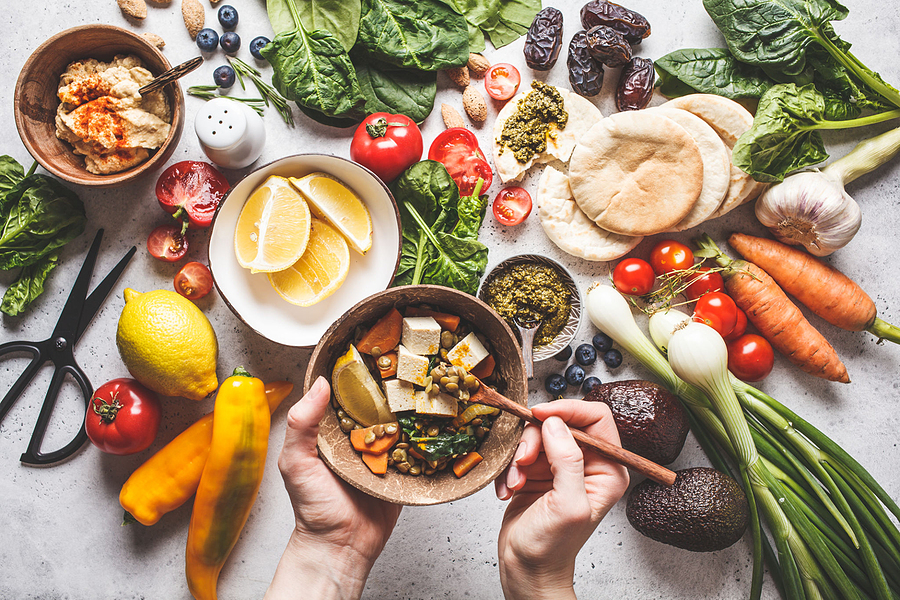Whether you have been a vegetarian for years or considering the transition, you might be surprised to discover that there is more than one way to adopt the vegetarian lifestyle. Scroll down to review the different types of vegetarianism practiced today and perhaps decide which is most compatible with your healthy lifestyle goals.

The Benefits of a Vegetarian Lifestyle
Vegetarianism is revered for several reasons. Not only is a plant-based, meat-free diet suggested to boost heart health, lower blood pressure, reduce the risk of heart disease, and lower cholesterol, but it is also good for the environment and the economy. It is also proposed that vegetarianism can abate Type 2 diabetes, prevent cancer, help manage weight, and even sharpen your brain!
Regardless of why you have chosen to become a vegetarian, your efforts will not be wasted. Whole grains, fruits, vegetables, and legumes are excellent sources of healthy, all-around nutrition. Before deciding on making the switch or modifying your current vegetarian diet, be sure to do your research or consult with your doctor to learn how to adequately nourish yourself with the right portion of protein, nutrients, and vitamins.
Most Common Types of Vegetarianism
The conventional vegetarian diet eliminates animal meat and fish, but still includes eggs and dairy. Yet the vegetarianism lifestyle entails a lot more than just that, and even makes room for personalized options. Traditional vegetarianism, which strictly excludes meat and meat-based products, is basically the umbrella category for a longer list of sub-categories of vegetarianism. These include pescatarians, flexitarians, lacto-vegetarians, ovo-vegetarians, and lacto-ovo vegetarians. Confused? Intrigued? Here’s a breakdown of each type of vegetarian diet:
Lacto-Ovo Vegetarians
Lacto-ovo vegetarianism is just a fancy name for the traditional, universally-accepted vegetarian diet, which excludes meat and fish, but includes eggs (ovo) and dairy (lacto).
Flexitarians
A flexitarian diet is a great starting point for anyone who wishes to transition from a meat-eating diet to a plant-based one. Flexitarians basically maintain an 80:20 or 70:30 type of vegetarian lifestyle. So, while they mainly eat a vegetarian diet, perhaps on the weekends or special occasions they eat meat.
Pescatarians
Pescatarians practice the traditional vegetarian diet but also eat fish and seafood. This diet provides omega-3 fatty acids and other fish-derived nutrients that are good for our health.
Lacto-Vegetarians
Lacto-vegetarians keep dairy products in their diet, like milk, cheese, butter, and yogurt. However, they omit eggs, fish, and meat.
Ovo-Vegetarians
Ovo-vegetarians keep eggs in their diet, but exclude meat, fish, and dairy products. Those who are lactose-intolerant prefer this type of vegetarianism.
Vegans
Vegans take vegetarianism to the strictest level, excluding all animal meat and products, including fish, eggs, and dairy. Some even avoid animal-based goods like leather.
Are you looking for delicious, healthy food made fresh daily? Visit English Ivy’s Downtown Pub and Eatery and enjoy a healthy brunch, lunch, dinner, and delicious drinks all weekend long. Be sure to check out our weekly specials, too!
Related Posts:
Top Recommended Cheeses For a Grilled Cheese Sandwich
How to Choose Between Flour Tortillas and Corn Tortillas
Recommended Grocery Store Wine and Cheese Pairings
